Q&A With All-American and International Student Sebastian Tostado
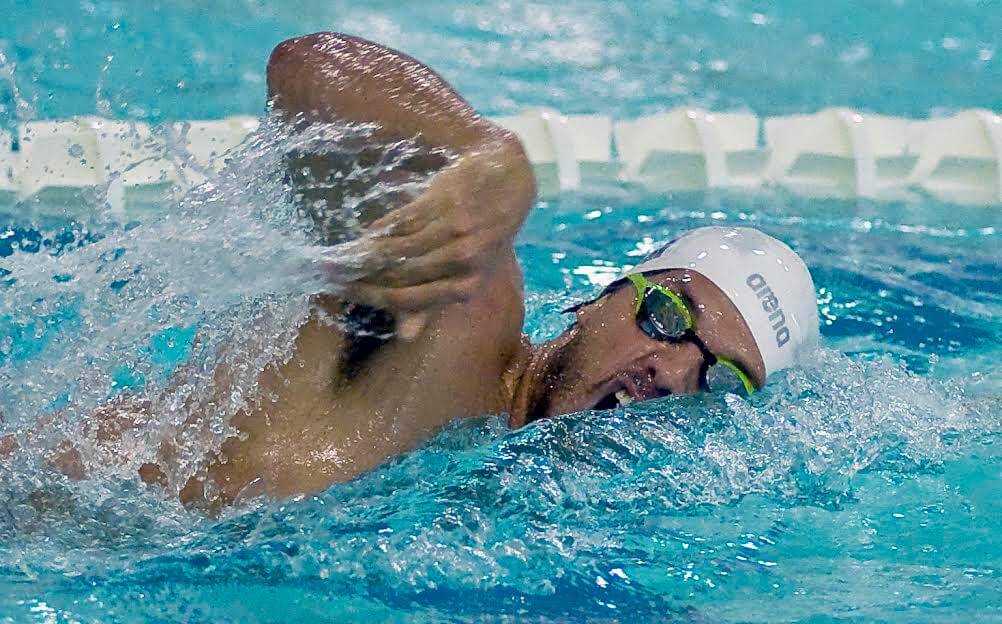
Mac Robertson, Swimming World College Intern.
The recruiting process can often be a challenging and confusing time for those looking to swim in college. Deciding where to spend the next four years of life can be a harrowing task. Now, imagine if your decision required you to move to an entirely different country. This was the case for Division III All-American swimmer Sebastian Tostado.
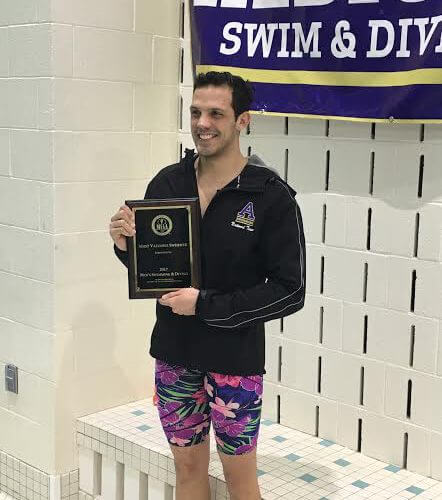
Photo Courtesy: Albion Athletics
Tostado grew up in Mexico City, Mexico. He attended Tecnologico de Monterrey and swam for his club team, Nelson Vargas. Once completing his education in Mexico, he decided to attend Albion College – a small Division III school in Albion, Michigan – to pursue a dual engineering degree. At Albion, Tostado thrived in the pool. He was named the Michigan Intercollegiate Athletic Association’s Most Valuable Swimmer in 2017 and achieved All-American status in the 200-yard IM and 200-yard freestyle.
His leap of faith to attend such a small school in the United States was a huge risk – one that paid out tenfold. Swimming World was able to catch up with Tostado to gain some insight on his experience and any advice he may have for current international students looking to swim collegiately in the U.S.
Swimming World: Why did you originally want to come swim in the United States?
Tostado: I wanted to pursue my swimming career at a highly competitive level without jeopardizing my academics.
SW: What factors led you to pursue a small Division III school like Albion College?
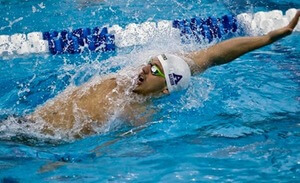
Photo Courtesy: Albion Athletics
Tostado: Mainly for their academic program and small classroom setting. These factors were greatly beneficial to my professional career. It helped me make meaningful connections with faculty that led to important opportunities, such as research and jobs.
SW: What benefits exist for an international student who chooses a small Division III school versus a large Division I university?
Tostado: The communication between the athletic department and academic department is very important. In a large school setting, it can be very difficult for a professor to be flexible with due dates, assignments, etc. Whereas at a small school, professors can be more lenient when it comes to coursework. Also, small schools provide a greater opportunity for athletes to establish a relationship with faculty members. This is extremely important for international students, since we are just beginning to build our network.
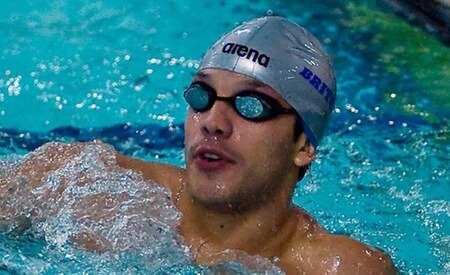
Photo Courtesy: Albion Athletics
SW: What athletic opportunities were you able to take advantage of by attending a small Division III school?
Tostado: Form an athletic point, it gave me the opportunity to be a part of the pride of being an student-athlete. However, I believe that the benefits are better portrayed by an athlete’s character growth. For example, by being part of Albion Swim and Dive, I was able to improve every day as a swimmer, a leader, and as a person. Being able to represent, lead, and help my teammates achieve their goals made me grow and learn valuable lessons that nowadays make me stand out in my professional life.
SW: What is your best swimming memory from your time at Albion?
Tostado: Winning the Michigan Intercollegiate Athletic Association Championships in 2016-17.
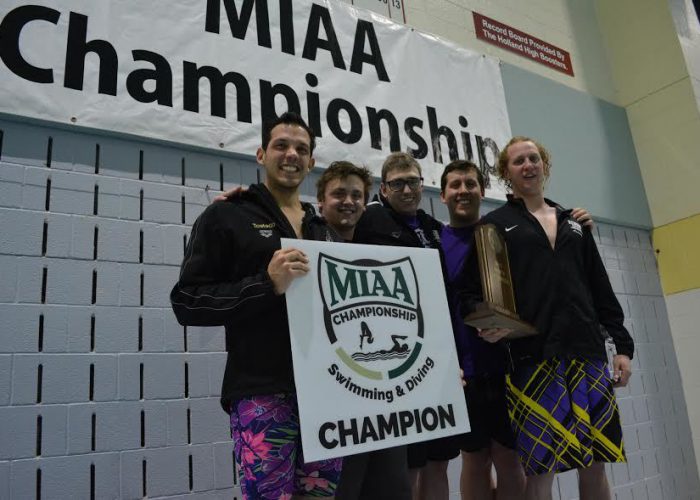
Photo Courtesy: Albion Athletics
SW: What was the biggest adjustment during your transition from swimming in Mexico to swimming in the United States?
Tostado: The NCAA regulations: I was used to swimming year-round in Mexico.
SW: What advice would you give other foreign students looking to continue their swimming careers at a college or university in the United States?
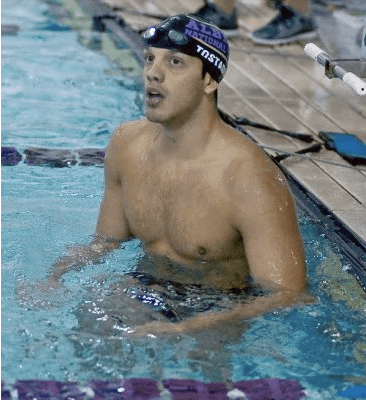
Photo Courtesy: Albion Athletics
Tostado: I think the best advice I could give is to do thorough research to find a program that fits you both academically and athletically. There is a big misconception that Division II and Division III athletes are not as talented as Division I athletes. That is simply not true at all: they just do not get as much exposure as Division I.
At the end of the day, all divisions have their benefits, but it is crucial to find the program that would challenge you the right amount. If you have a small challenge, you will improve a little bit. Likewise, a very big challenge will make you collapse and have a small improvement. You need to find the perfect balance that would help you peak and thrive. This is different for every student-athlete, and that is why doing in-depth research is very important.
Commentary: All commentaries are the opinion of the author and do not necessarily reflect the views of Swimming World Magazine nor its staff.



